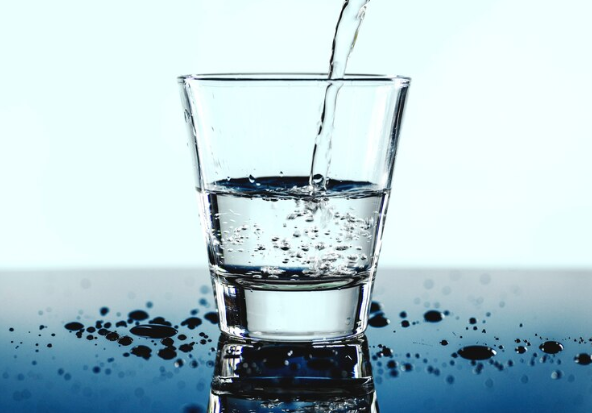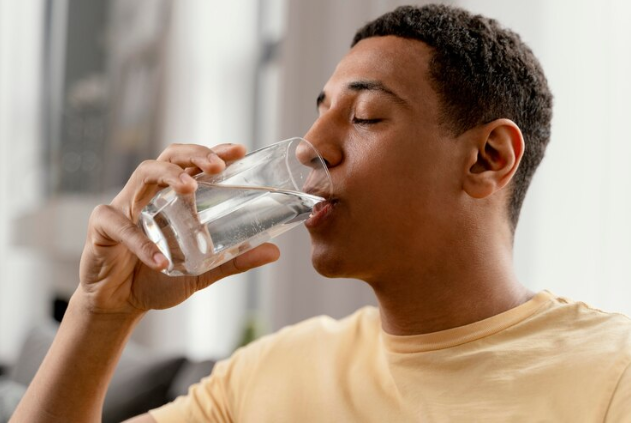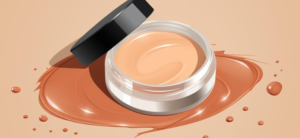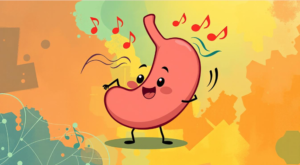Hydration is often regarded as an afterthought, a mere annoyance that is not usually prioritized. It’s not However, it can have dire impacts on your health. One area where dehydration might creep in subtly and cause destruction is blood pressure.
Many would be oblivious to the fact that there exists a relationship between dehydration and hypertension, potentially putting them at risk of easily preventable consequences.
What is more shocking is, that the only reason that most people may not know is how a simple thirst for water would affect the body’s core in itself. It’s more than just thirst and dryness; it involves the heart and how it functions, the kidneys and its ability to filter out toxins, and stress levels within the body.

The Link Between Dehydration and High Blood Pressure
Hyponatremia and high blood pressure may appear to fall into different realms in the beginning, but considering their seeming dislocation from one another, their relationship is rather intricate.
It especially becomes evident when one understands that when the bodily fluids are high in concentration, blood volume is at an all-time low. Subsequently, blood volume tends to increase, and with it hypertension, because the heart needs to pump a constant but limited volume of fluid throughout the constricted veins.
Furthermore, the deficiency of water causes an increase in the levels of hormones like vasopressin and aldosterone. As a result, blood pressure levels could go up even more as the kidneys are instructed to hold more sodium and water.
Chronic dehydration places extra taxing demands on the cardiovascular system as well as the functioning of the kidneys. This constant pressure may play a role in the contributing factors of chronic hypertension problems, which are relatively undiagnosed during standard health examinations over an extended timeframe.
This connection is important for those who wish to control their blood pressure and thereby their overall well-being. It is not only the diet or amount of movement that matters, hydration for instance is also important.
Related Articles:
Welch Allyn Blood Pressure Monitor – Is it Accurate?
Life Source Blood Pressure Monitor
Equate Blood Pressure Monitor – Is It Accurate?
What Happens to the Body When Dehydrated?
Dehydration makes it difficult for the human body to perform its most basic functions. Water serves an important function in thermoregulation as well as in the delivery of nutrients in the human body. These functions, however, do not work efficiently when there is a severe lack of water.
As the volume of the blood decreases, the heart works harder. This may result in an increase in heart rate which then affects the heart as well as the cardiovascular system in general.
Organs like the kidneys might start retaining water thus damaging their ability to filter waste. This results in the accumulation of toxins in the bloodstream.
Cognitive dysfunction is another effect of dehydration. Due to decreased blood and oxygen flow to the brain, you may feel a headache or fatigue.
Muscle cramps are common too owing to the presence of electrolyte imbalance as a result of fluid deficiency. This disturbance can affect physical stamina and performance greatly.
The skin may start losing its elasticity and become irritable if dehydration becomes chronic. The ability of the body to be able to heal itself begins to decline and progresses with time when hydration is not taken seriously.
How Dehydration Affects Blood Pressure?
Dehydration can exert drastic changes to the blood pressure. When the body is devoid of enough water, it cannot be able to perfuse the body adequately thereby decreasing the duration of blood volume.
In relation to this, due to the scarcity of blood, the heart has to exert a force on the little amount there is, causing hypertension. As a result of such an increased demand for heart muscle contractions, the levels of blood pressure temporarily rise.
Also, the concentration of certain hormones such as renin is increased, which is secreted during dehydration events. Such hormones indicate signals to the kidneys to retain sodium and fluid within the body, which disturbs the fluid balance within the system even further.
For patients already suffering from high blood pressure or any form of cardiovascular disease dehydration would worsen such conditions.
Water consumption is important in general, but it becomes essential aforcontrolling blood pressure. Regular behaviors like drinking adequate amounts of water each day can reduce these risk factors quite well.
Prevention and Management of Dehydration-Induced High Blood Pressure
What is the relationship between hydration and high blood pressure well, Water, because it’s your friend when it comes to the prevention of dehydration and its complications such as high blood pressure. More than eight glasses of water every day should be taken but can be modified according to the weather and physical exertion.
You can also introduce hydration foods to your menu. In addition to the sea which could be a wide range of fruits including watermelons and oranges, cucumbers and certain vegetables are also good sources of water and nutrients.
It can also be helpful to keep an eye on how much fluid you consume. You can use a diary or phone application to make sure you record water consumption throughout the day.
In addition, if you notice any symptoms of dehydration such as a dry mouth or tiredness, take fluids or water-rich foods without delay.
For individuals with high categorical blood pressure, it’s important to control the rate regularly. This enables the providers to offer relevant counseling based on the different users’ needs and proxy hydration and health goals.
Other Factors That May Contribute to High Blood Pressure
There are other causes of high blood pressure that do not call for dehydration. There is a genetic predisposition, and if you have a family background of hypertensive diseases, you stand a chance of being hypertensive yourself.
Also, lifestyle habits have an impact. There are individuals who take a high-sodium diet, which can cause high blood pressure. On the other hand, less potassium consumption can result in a shortage of capability to control sodium levels efficiently.
Also, physical inactivity has its contribution. Sedentary living left the heart unchallenged and allowed for the accumulation of fats to promote hypertensive disorders.
Another factor is stress. Stress when persistent can be a cause of hypertension for it can change hormonal levels that are used to cope with stress but also encourage abnormal behaviors like overeating or even smoking.
Diabetes and kidney disease are some of the other medical situations that may act as risk factors since they alter the mechanisms of how fluids are regulated as well as blood vessel health.
Signs and Symptoms of Dehydration and High Blood Pressure
Dehydration can present in a number of forms and therefore, its symptoms are important to identify. For instance, dryness of the mouth, tiredness, and dizziness are most likely signs of dehydration. You may also observe that your skin does not go back in place easily or feels much more dry than usual.
There is a common belief that high blood pressure is not a threat until it has fully developed, and this is not completely false. Sometimes the affected person experiences a headache, feels short of breath, or has a nosebleed, but even these symptoms can warrant a visit to the doctor. Such symptoms are not always noticeable, but people should be aware of such problems.
The situation becomes particularly severe when a patient suffering from hypertension also has dehydration. The need to drink more water is perhaps the most common warning sign, but feeling disoriented and even annoyed can also be symptoms of dehydration.
Daily, try to be mindful of the different sensations and feelings in your body. It’s also good to stay sensibly informed about body signals so that one may practice remedial measures in time.
Conclusion
Most people will be astounded by the correlation between dehydration and higher blood pressure. When there is not enough water in the body, the body will likely resort to mechanisms like vasoconstriction which ensures that the essential organs still receive oxygen and blood. However, this glycogen may cause blood pressure to rise blood, which can aggravate everything, leading to a vicious cycle that is a health risk.
Therefore, everyone must understand how dehydration will negatively impact their body. Irritability, tongue dryness, excessive sleepiness, and head rushes are examples of how the body is sending stress signals, and drowning them out early can help avoid the need for more complicated interventions later on.
You may be as careful as possible about proper hydration, however, one must never forget that it is not the only reason for high blood pressure. The Internal environment as well as the external genetics, dietary or stress levels, or downright habits, all affect on body’s fluid mathematics. Such an integrated approach will enable you to take charge of your health as you should.
The management of cardiovascular diseases and all its’ complications involve simultaneously controlling of two important factors – dehydration and high blood pressure. It does not take much to achieve normal pressures, moderate water ingestion, or consumption of additional vegetables and fruits.
People may avoid making unhealthy lifestyle choices, especially regarding dehydration and high BP. They won’t suffer from such problems knowing all the aspects and be capable to take better care of their health and increase end results.
Related Articles:
Welch Allyn Blood Pressure Monitor – Is it Accurate?
Life Source Blood Pressure Monitor
Equate Blood Pressure Monitor – Is It Accurate?



